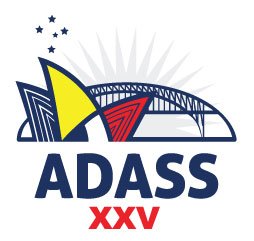Smartphones, Dark Matter & Code – Kai Polsterer @ ADASS in Sydney

Three hundred international astronomers and software engineers will gather in Sydney during 25-29 October for the 25th annual Astronomical Data Analysis Software and Systems (ADASS) conference, the first meeting of ADASS in Australia. This meeting is hosted by the ARC Centre of Excellence for All-sky Astrophysics, CAASTRO.
Software to acquire and process data is at the heart of astronomy today, and software development for a big astronomical project takes hundreds of person-years of effort. Astronomers are also at the forefront of tackling ‘big data’ problems. On Tuesday (27 October), Nobel Laureate and CAASTRO member Professor Brian Schmidt of the Australian National University will give a keynote address titled “Big Data and Big Astronomy”.
At this meeting, Ms Nuria Lorente (Australian Astronomical Observatory) will become the new Chair of ADASS, the first woman and the first Australian to do so. Also:
* Nuria will describe how to guide tiny self-propelling robots (‘starbugs’) so they don’t run into each other – a problem like guiding remotely operated mining vehicles
* Kai Lars Polsterer (Heidelberg Institute for Theoretical Studies, Germany) will show how astronomers can fly through their data using smartphones and Google Cardboard
* Yeshe Fenner (Astronomy Australia Limited) can outline how Australia is contributing to the International Virtual Observatory, a project to meld the world’s stores of astronomical data
* Elise Hampton (student, Australian National University) will talk about using ‘artificial neural networks’ (a machine-learning technique) for handling the data of thousands of galaxies
* Matthew Whiting (CSIRO) will describe the high-performance data ‘pipeline’ for processing the data torrent from the Australian SKA Pathfinder telescope, now coming into operation in Western Australia
* Catherine de Burgh-Day (a CAASTRO student at the University of Melbourne) will present a new way to map the distribution of Dark Matter in galaxies.
CAASTRO is a collaboration between Curtin University, The University of Western Australia, the University of Sydney, the Australian National University, the University of Melbourne, Swinburne University of Technology and the University of Queensland. It is funded under the Australian Research Council Centre of Excellence program and receives additional funding from the seven participating universities and the NSW State Government Science Leveraging Fund.
Meeting website:
http://www.caastro.org/event/2015-adass
More information:
Nuria Lorente (Australian Astronomical Observatory)
Mob: +61 427 263 242
Nuria.Lorente@aao.gov.au
Media assistance:
Helen Sim (CAASTRO)
Mob: +61 419 635 905
hsim@physics.usyd.edu.au
About HITS
HITS, the Heidelberg Institute for Theoretical Studies, was established in 2010 by physicist and SAP co-founder Klaus Tschira (1940-2015) and the Klaus Tschira Foundation as a private, non-profit research institute. HITS conducts basic research in the natural, mathematical, and computer sciences. Major research directions include complex simulations across scales, making sense of data, and enabling science via computational research. Application areas range from molecular biology to astrophysics. An essential characteristic of the Institute is interdisciplinarity, implemented in numerous cross-group and cross-disciplinary projects. The base funding of HITS is provided by the Klaus Tschira Foundation.